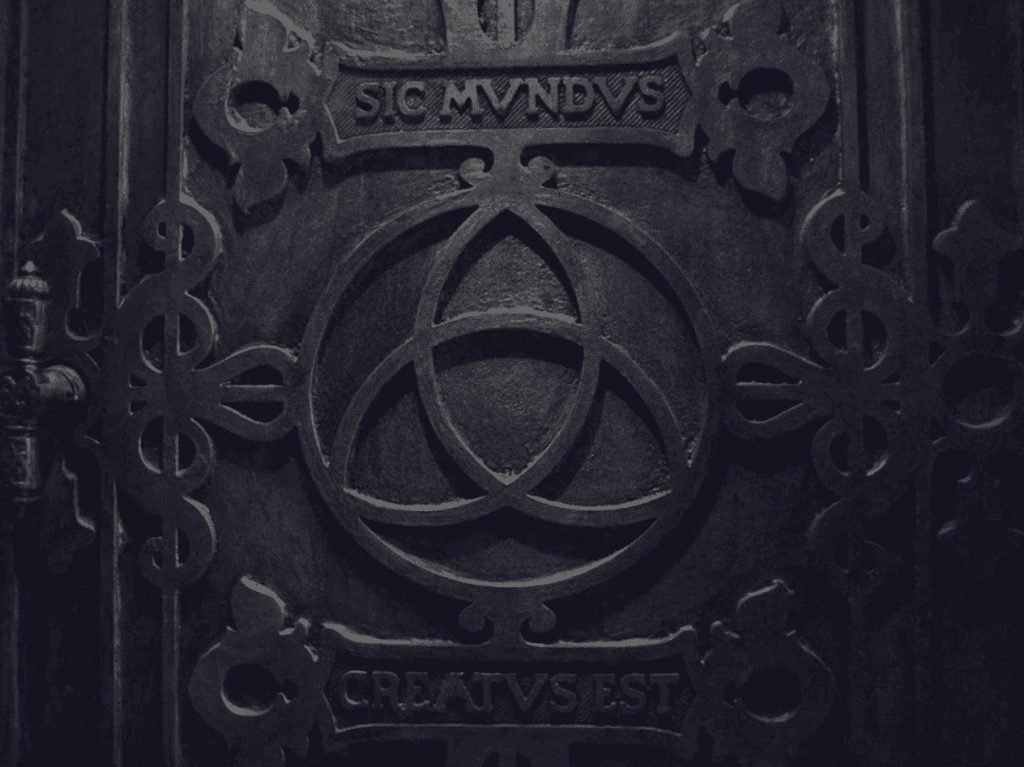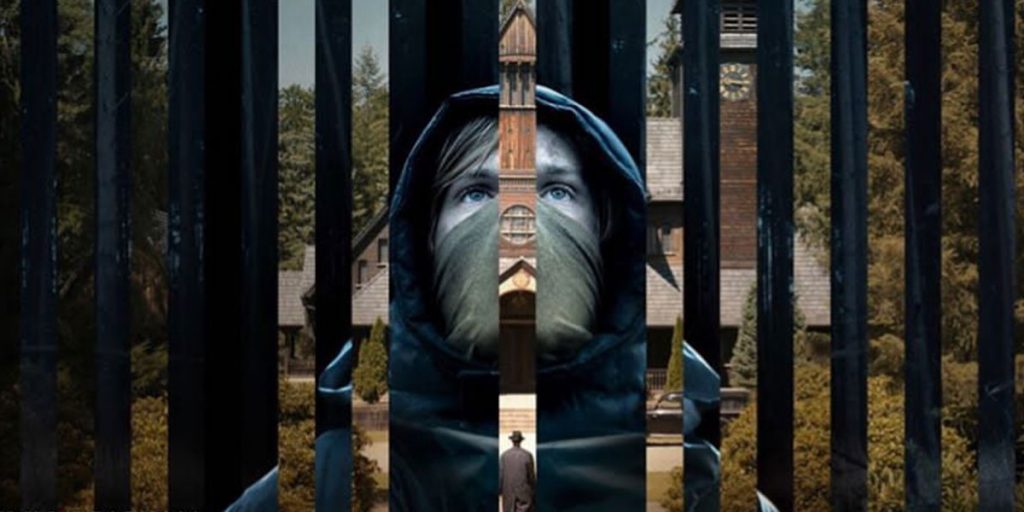Dark ’s creators Baran bo Odar and Jantje Friese’s have crafted a remarkable, labyrinthian series of interconnected characters, events, and consequences.
This review contains conceptual spoilers for Seasons 1 and 2 of Netflix’s Dark. No specific characters are mentioned. As always, I wholeheartedly encourage you to watch the show before reading.
Netflix’s Dark is a show I wish I had seen earlier. In a straightforward sense, I wish I had started it on its original release date in December of 2017 instead of just recently. But, more personally, I desperately wish that I would have been able to watch this show when I was a teenager craving and grasping at more mature content. Dark confidently walks the line between concretely adult-orientated content and young-adult plotting with a knowing and unique finesse that encourages, induces, and requires tremendous engagement and self-reflection. Creators Baran bo Odar and Jantje Friese have built a series of staggeringly dense complexity and created a show that nearly requires external, supplemental reading through explanatory Wikipedia pages and Netflix’s own dedicated Dark website to keep up with. And yet, for all its density and mature violence, the series’ core backbone unashamedly retains so many of tropes that define young adult fiction – the “chosen one” teenager at the center of the world, time travel adventures, and a stirring war between “light and darkness”. As Netflix has essentially perfected their model of original, mainstream content, Dark stillstands apart in the ways it gracefully integrates and elevates its more simplistic and accessible origins to achieve new depths.
A few sentences ago, I mentioned “time travel adventures”. And yes, Dark is centrally built around the discovery and manipulation of time travel, but to label them “adventures” depreciates and undersells the value, function, and seriousness of time travel in Dark. Odar and Friese mainly use time travel to expose communal wounds, paradoxes, and pain; to ruminate on the seemingly eternal effects of trauma. While the tortured and mournful characters of Dark may discover the origin (however paradoxical that origin may be) of their searing pain and carried burdens, the revelation never frees them from suffering. As the plot compounds on itself, introducing conflicting and divergent timelines that intersect with apocalyptic consequences, Dark never for a moment spares its characters from the agony of a lived existence. As inherently powerful as the discovery and use of time manipulation may be, Dark has yet to endorse or employ it as anything other than an arresting tool for the observation of human suffering.
Dark’s time travel may briefly reunite a fractured family or be used to display the love and care that others extend to people in events that are entirely beyond them, but as so many of the show’s characters come to vocalize themselves, life rigorously remains truly difficult. The sacrifices these characters must preserve through are frequently unhealthy and fundamentally destabilizing. However, the hatred of Winden that its characters carry, is far from unprovoked. Dark is absolutely teeming with deceptive, selfish, immoral, and vile characters. For as often as the narrative mentions the secretive, binary war between light and dark, its characters and situations are anything but easily defined and predictable. These complications, in turn, are what distinctly humanizes these characters. As unforgivable and selfish as many characters continue to be, Dark’s external world and pervasive atmosphere come to routinely rationalize their impulsive nature and carried attitude – “Pain is their ship. Desire is their compass”. So, when a character mentions their sorrowful hatred for Winden, one truly understands their distaste, as we’ve repeatedly watched the ways in which this dreary town has molded and broken its’ characters as much as these characters have contributed to the location’s own malevolent aurora.

In ways only time travel would allow, Dark also physically manifests its characters’ own self-hatred, often pitting competing versions of the same character from different timelines against one another. I am still in awe at the way Dark uses the revelation of identity to pivot into explanations of lived trauma and morbidly rationalize the most despicable of actions. It’s a refreshing and entirely unique take on the villain’s ancient adage of “we’re not so different, you and I”, since, often in the show’s case, one’s worst enemy may well be the future or past version of themselves. For as much pain as these character’s inflict on one another, Dark plaintively knows that self-infliction and self-hatred bites the deepest and lasts the longest.
It’s a testament to Dark’s seminal ability to induce existentialism and self-reflection, that I have written thus far without discussing its immaculate production design, casting, and atmosphere. Much of Dark is just that: washed out, shadowed, and mercilessly weathered. But it’s in this oppressive blackness that the series brings pronounced emphasis to the briefest illumination: the syncopated, cobalt police lights shinning out over an endlessly bleak and foreboding forest, the way that Winden’s rain appears almost as needles, incessantly assaulting its character’s distraught faces, and the fog and mist that swallows all of these elements and effects in a comprehensively unsympathetic mood.
Composer Ben Frost’s work here is also sublime, employing a vast and diverse soundscape that elevates all of Dark’s moments (I adore each episode’s distinctive musical montage). Frost frequently scores scenes of similar emotional gravity in completely alternative ways – a driving, ominous synth later is later swapped for an equally unnerving, acapella choir piece with discordant violins. The show’s acting and casting as well, is truly spectacular, and I was routinely impressed by the similarities and differences between separate, time iterations of the same character. There is plenty more featured within the show that’s commendable, intriguing, and deserving of its own entirely separate article, but simply put, Dark is ruthlessly engaging.
All of what’s mentioned above is an effort to encapsulate how Dark is special in ways both immediately identifiable and yet still unintelligible: it’s Netflix’s first ever German language production, it’s a monumental mix of young adult structure with mature sensibilities, and it’s a densely layered exploration of time travel and time manipulation. Though personally, Dark is most special for its morose evaluation of existence and time itself; in how the discovery and employment of time travel doesn’t free any of its characters from despair.
While it may appear pedantic at times, Dark is largely and surprisingly undidactic, presenting alternatives and hypotheticals that don’t exist solely for imaginative theories and philosophical musings (of which there are many featured), but that also double as explanations and rationalizations for psychological wounds and physical scars. In Dark, time is clearly nonlinear and paradoxical, and so also, by both direct and indirect proximity, is trauma and pain. As spoken aloud by Winden’s own burdened survivors, “Life is a labyrinth” and also “a spiral of pain”. Ultimately, we are all but “wanderers in the darkness”, lost in time.
Dark’s third and final season debuts on June 27th, 2020, and I earnestly hope you’ll be there to experience it with me. Until then, may we all take comfort in the knowledge that we never belonged, and we cannot ever truly understand. All we can do, is endure.

